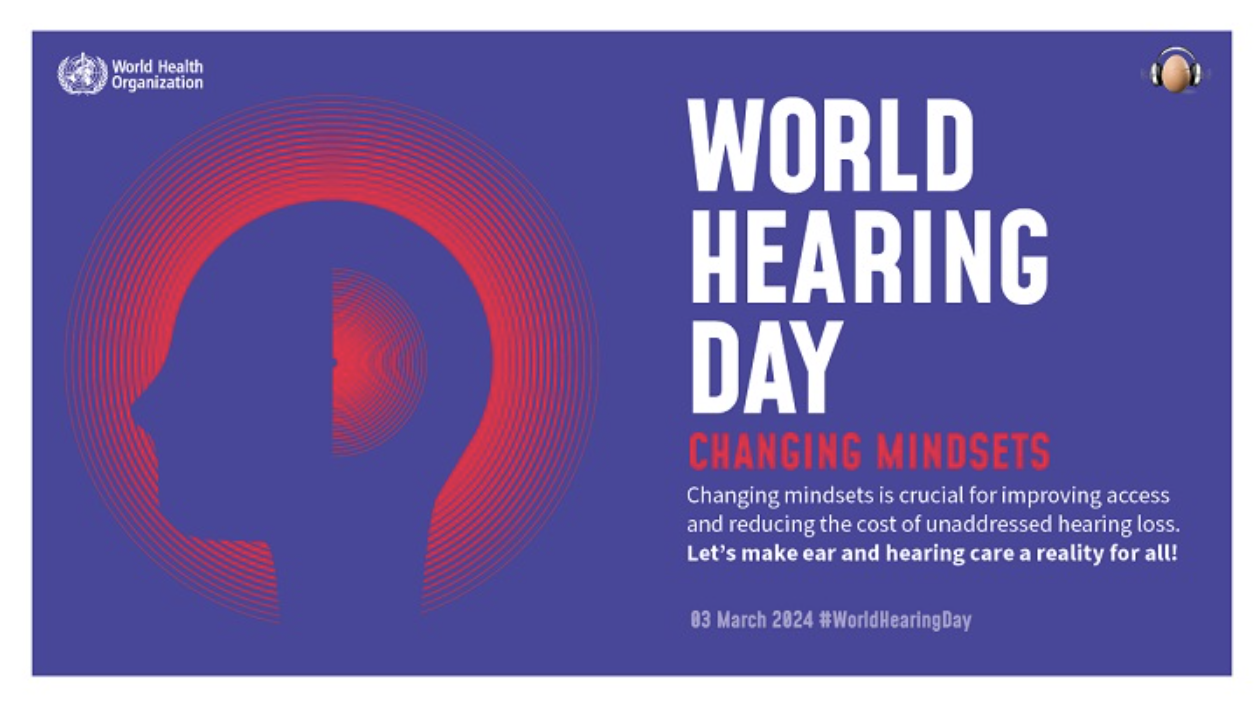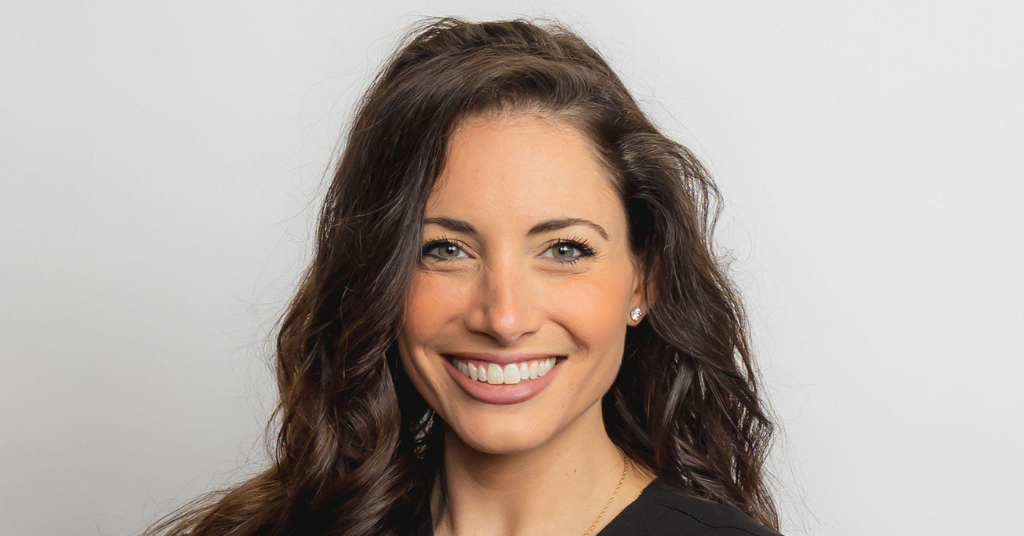
Make a New Year’s Resolution to Wear Your Hearing Aids
December 31, 2018
3 Phonak classroom resources you should know about
January 3, 2019How my child’s mild hearing loss led to my hearing loss diagnosis

Six years ago, or maybe 26, my journey with hearing loss began.
It was six years ago that I concretely learned my daughter failed her newborn hearing screening. I’m glad I was already seated because it was not news that my husband and I expected to hear.
Like 95 percent of children born with hearing loss, my daughter was born to normal hearing parents. Ask other parents of a child with hearing loss about their experience, and likely you’ll hear a journey peppered with confusion and grief. You can read about my motherhood journey with her here.
It was roughly twenty-six years ago that I perceived intermittent ringing in my ears. But as a whimsical tween, I always believed the old wives tale that the ringing in my ear meant that someone was talking about me and I chose to think it was my crush. Oh, the fantastical imagination of youth! Little did I know that there was an 80 percent chance that I had hearing loss. How would I have known, hearing tests were not routinely encouraged where I lived.
How would I have known?
I only remember getting my hearing tested twice in my life. Once in Kindergarten and then again in fifth grade. I remember filing into the gym in a long line with my peers, going into a space sectioned off by a curtain, then raising a hand when I heard noises. After that fifth grade test, neither my school nor my doctor suggested I get my hearing tested. Not even after they learned that my daughter had congenital hearing loss.
Looking back, I’m not sure when I started losing my hearing. I can remember being at restaurants and parties in high school and college, and not being able to understand what my friends were saying. And after asking “what?” one too many times, just giving up and deciding a fake smile and a nod was decidedly easier. During our years in adolescence, we spend so much time trying to fit in that I was blinded to the fact that others didn’t have the same hearing challenges that I did.
“During our years in adolescence, we spend so much time trying to fit in that I was blinded to the fact that others didn’t have the same hearing challenges that I did.”
So a year ago, when I learned that I have mild to moderate hearing loss, I guess I wasn’t surprised. In fact, in the time since, I have found myself overwhelmingly grateful to finally know. And yet, it’s strange to think that me obtaining a hearing test only occurred through a chance series of events. I only got my hearing tested because I learned that 80 percent of people with tinnitus have hearing loss.
The only reason I learned that fact is because I work for Phonak and I only work for Phonak because I relentlessly pursued a job here after my daughter’s hearing loss was affirmed. So, if not for my daughter’s hearing loss, I could have lived a few more decades with unidentified hearing loss.
“If not for my daughter’s hearing loss, I could have lived a few more decades with unidentified hearing loss.”
Understanding even more about hearing loss
Did you read the article, “A Minor Hearing Loss Now can Mean Major Dementia Risk Later”? Or maybe you read the review of that article examining, “Who is impacted by hearing loss and dementia?”
Beyond reducing my risk of dementia, I now also understand the challenges and solutions available to my daughter. When you think about all the children born to normal hearing parents, it’s easy to understand their bewilderment. The average parent isn’t an expert in hearing, brain plasticity, technology, listening, talking or literacy development. They need to be guided and counseled on how to give their kid the best access to the home’s language and then somehow, they need to find the language to explain this to others. It is a daunting journey that often loses momentum because of emotions (insert glass of wine here).
Between my daughter’s and my experiences, and getting to work with extremely passionate pediatric audiologists, I have a really unique perspective. Though I wouldn’t consider myself an expert, I’m getting better at explaining to others what matters to children with hearing loss.
Three new ways I explain mild hearing loss:
1) Listening fatigue is real, watch out!
Have you ever had dinner at a loud restaurant: you’re shouting, leaning in to listen, and finally, when you leave the restaurant, the silence hits you like a wall. If you’re like me, you go home and go straight to bed. Now imagine having to work to hear every day at school. That’d be exhausting! Evidence shows that sound processing is one of the most demanding tasks the nervous system has to perform (Kraus, 2018).
Kids with hearing loss often have to focus harder to perceive the words. This means they don’t have any leftover brain power to integrate this new information (Bess FH, Gustafson SJ, Hornsby BW, 2014). Listening fatigue doesn’t just make them tired, for a kid it also can cause them to fall behind. You can work with your audiologist and hearing itinerant to identify challenging situations and ensure that your child has the right solutions in the classroom. By identifying these situations and using proper technology, the impact of listening fatigue can be minimized.
2) Every speech sound matters to a developing brain
My daughter goes to a mainstream school, so most of her teachers have never had a student with hearing loss. They’re learning how to use new technology, where to have her sit, how to speak to her, all while teaching 20+ other kids math, science and reading. It’s a lot to expect of a teacher. So far, my daughter’s teachers indulge me when I ask them to list noise sources in their room. They’ll tell me things like “HVAC units, chairs scuffing, small group discussions, kids chatting,” and they are the first to affirm the research that classrooms can be as loud as a running vacuum. A young person’s typical, learning environment isn’t optimal.
This conversation helps me create more buy-in from the teacher. “Clear access to speech helps their brain develop normal speech and language,” I tell them. Then when the hearing itinerant comes in with the latest Roger microphone, the teacher better understands that the way my daughter’s hearing aids pair with this adaptive remote microphone is critical to be sure that their lessons are heard above the chaos of childhood.
3) It’s not lip service: Improve access to speech in “distance” and “noise”
Think of a time your partner has chatted with you from another room. Maybe it was to confirm which one of you is picking up your child from practice tonight – now what if the dishwasher is running or the TV is on, or both. Your ability to hear clearly in these situations would be very different than if that person were just a few feet away, right?
For someone with hearing loss, we can’t pick up on those sounds the same way. Be it distance – which 40 percent of a child’s day is spent more than 6 feet from the speaker (Mulla and McCracken, 2014) – or noise – which covers up the sounds in the speech banana (Walker, 2018) – our ability to hear clearly is impeded. That’s why tools like the Roger system don’t have to be just for school. We have our own Roger at home; which helps our family at gymnastics practice, the zoo or even just calling up the stairs to let our daughter know its time to go.
I know it seems strange to explain things to parents with a citation after citation, most of us don’t have conversations with footnotes. But parents of kids with hearing loss are the first to tell you that we don’t know what we don’t know. Many of us are hungry for more information. I hope my footnotes are helpful on your journey with your family member.
Just as I’m grateful for my daughter’s hearing loss to help me avoid a future I didn’t want, I’m grateful for my own hearing loss. I now better understand what she needs and how to empower her and others in her life to improve their communication with each other.
- Author Details



